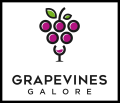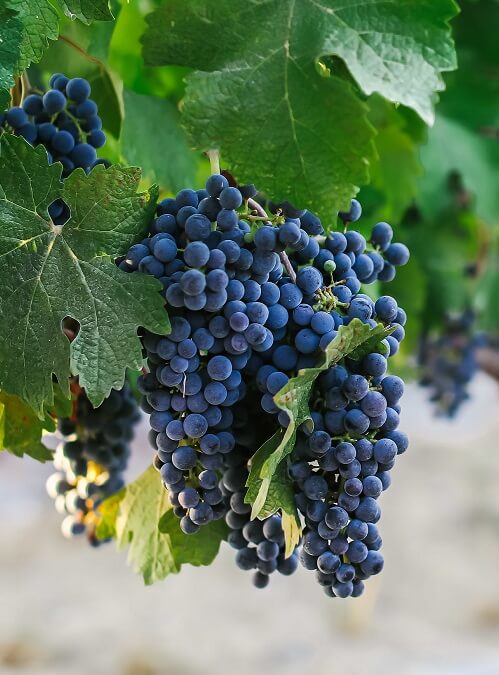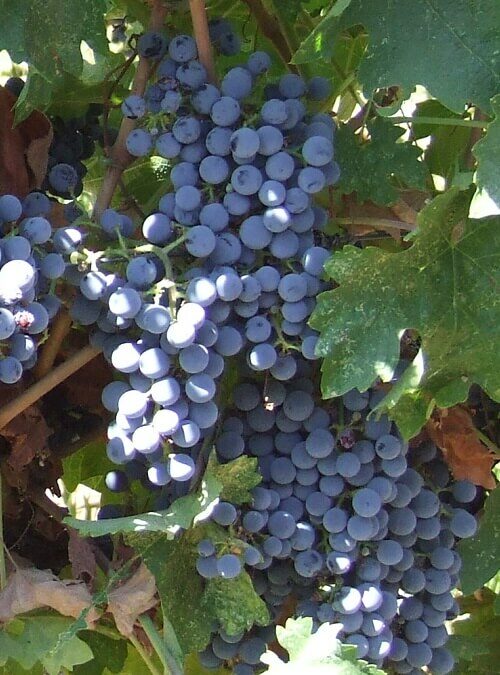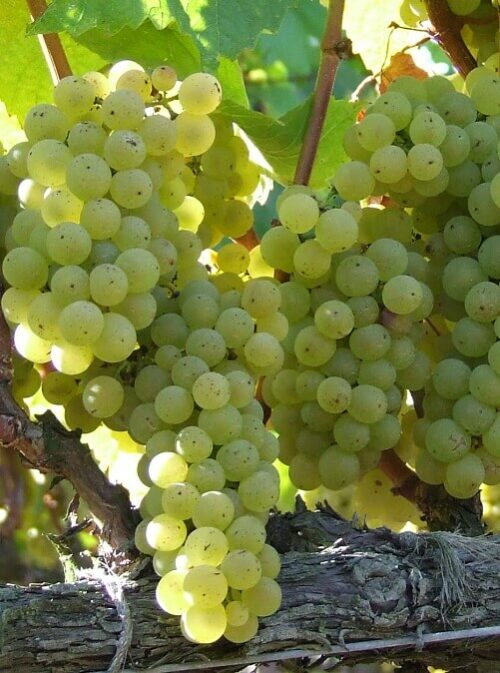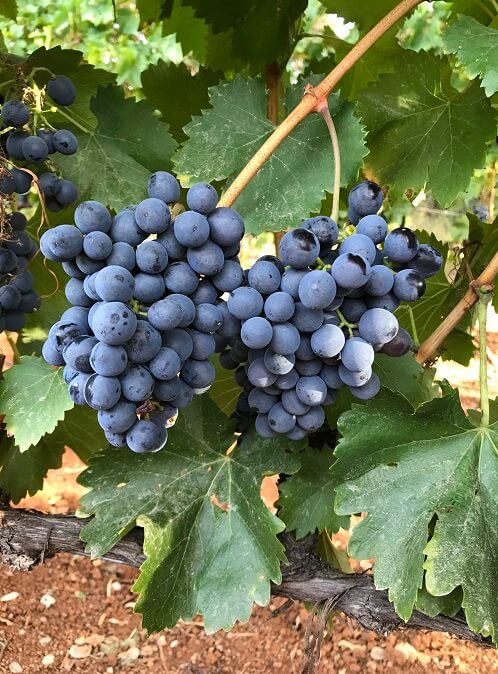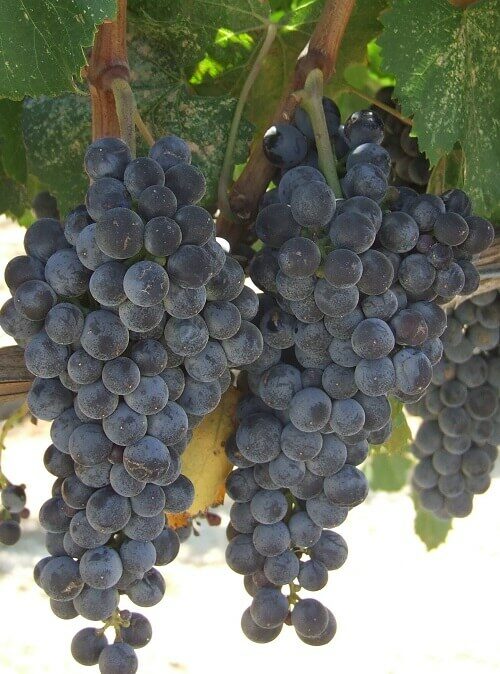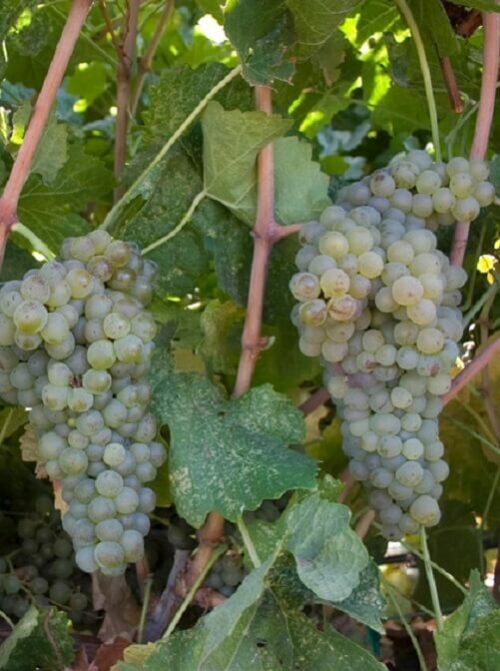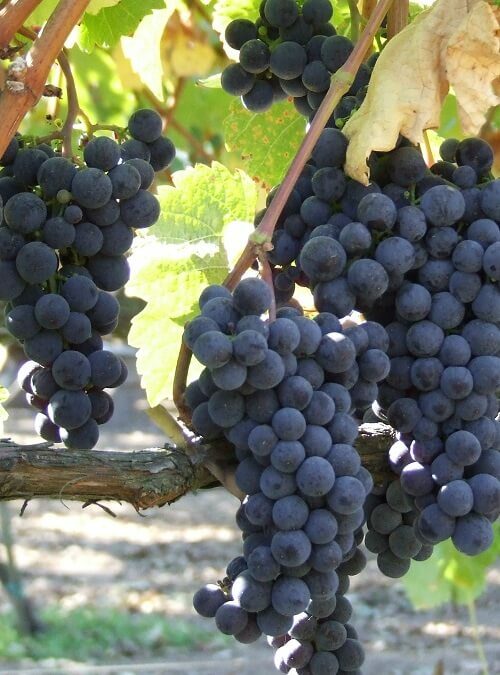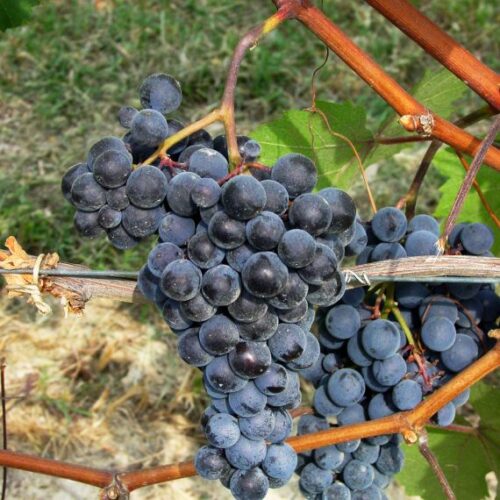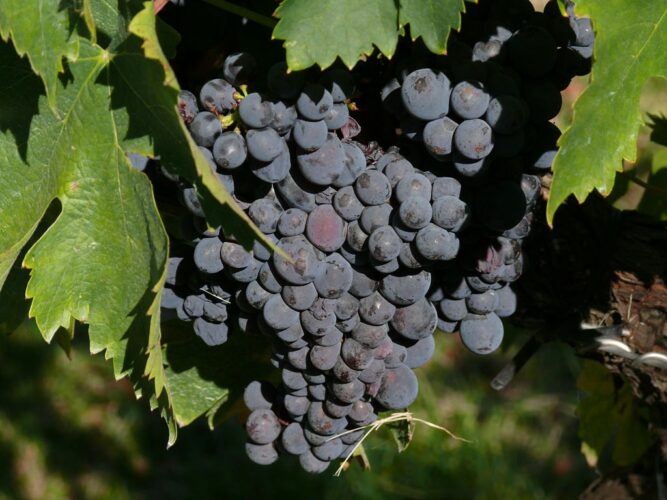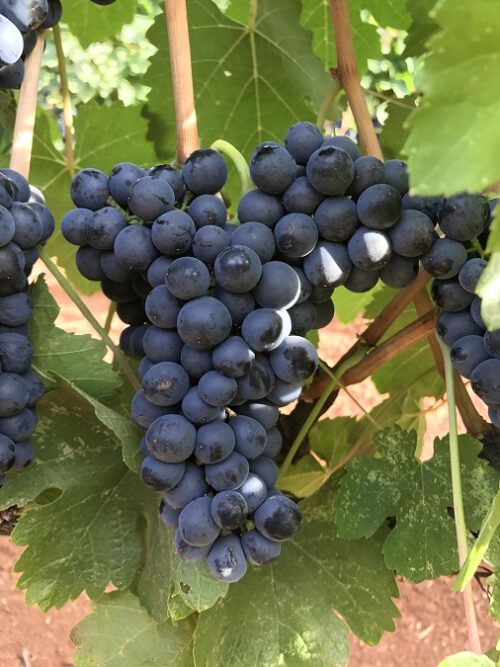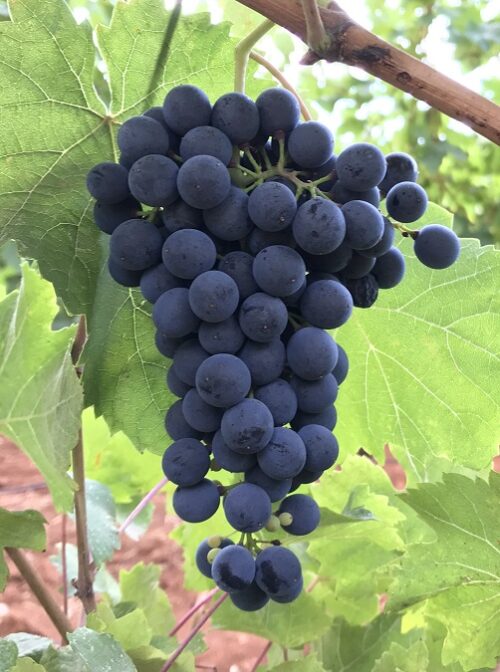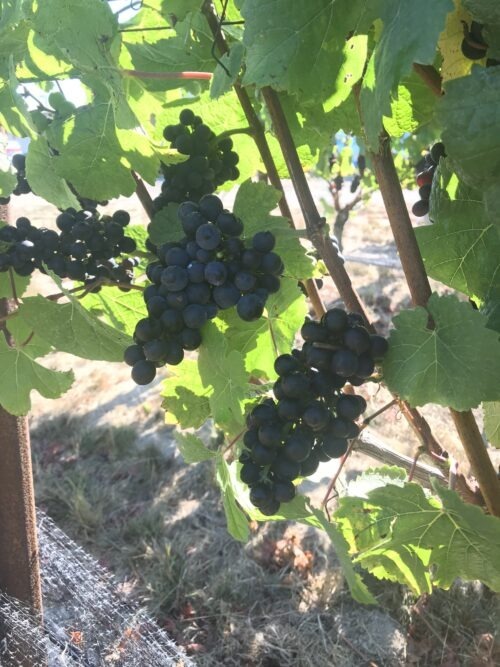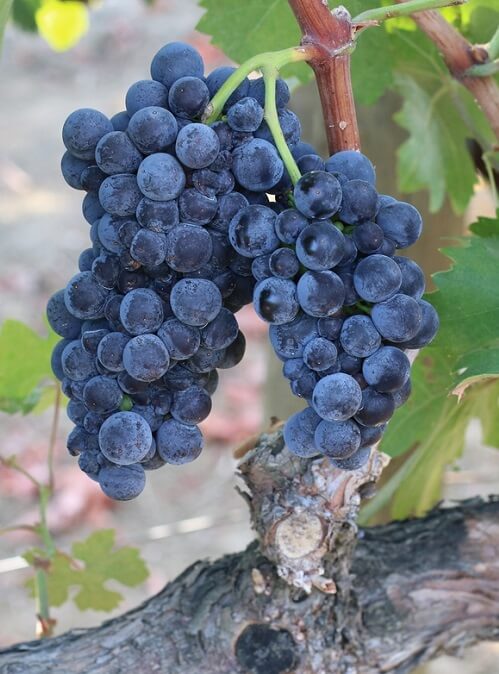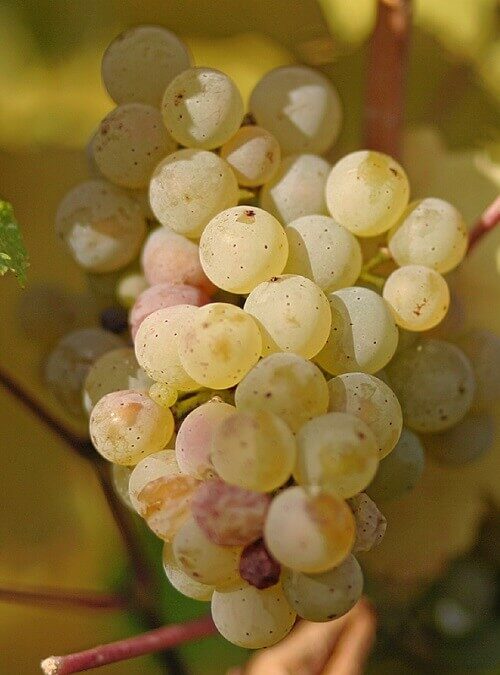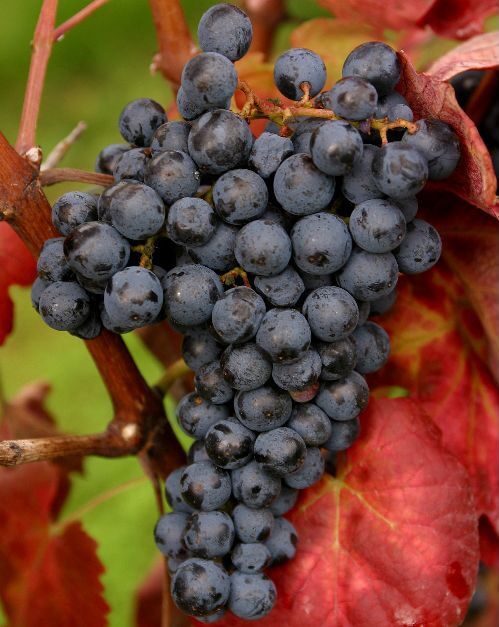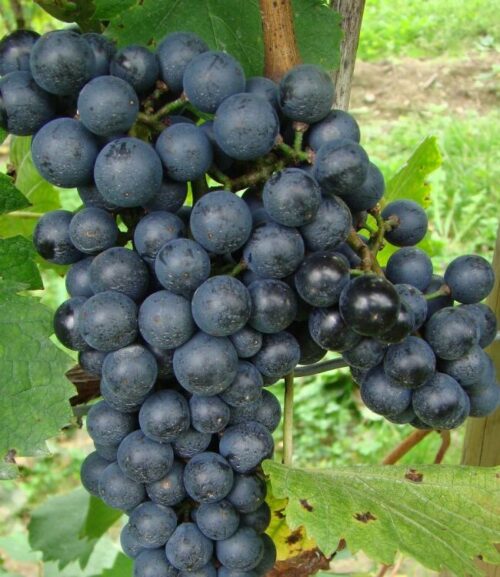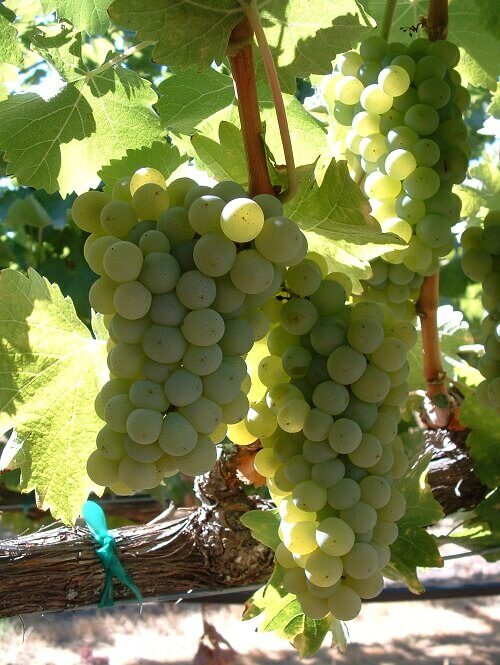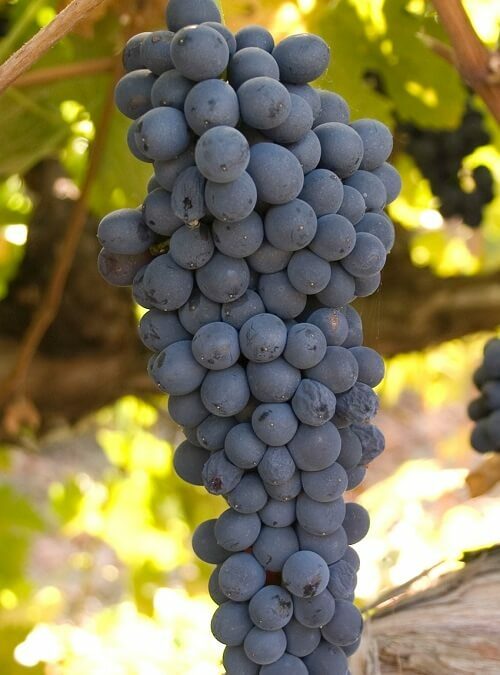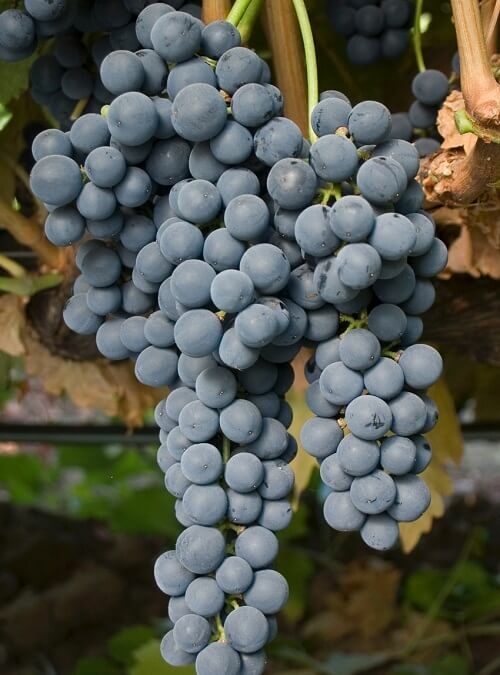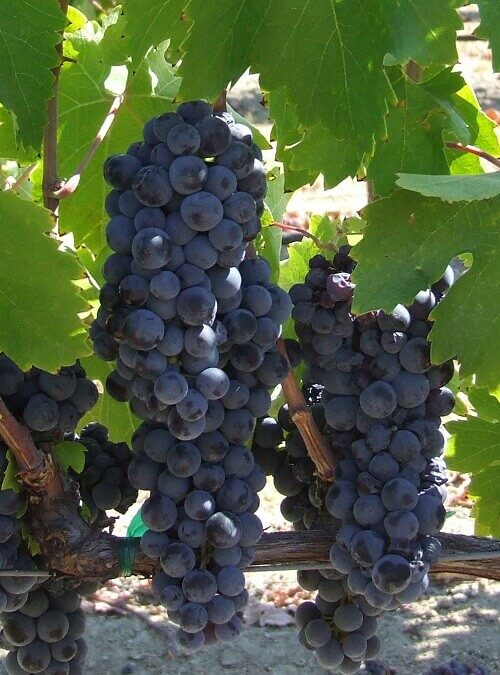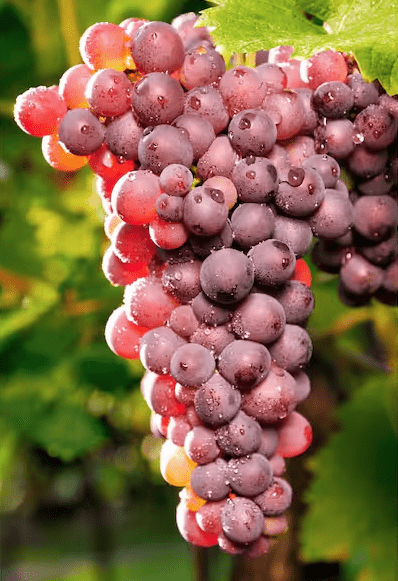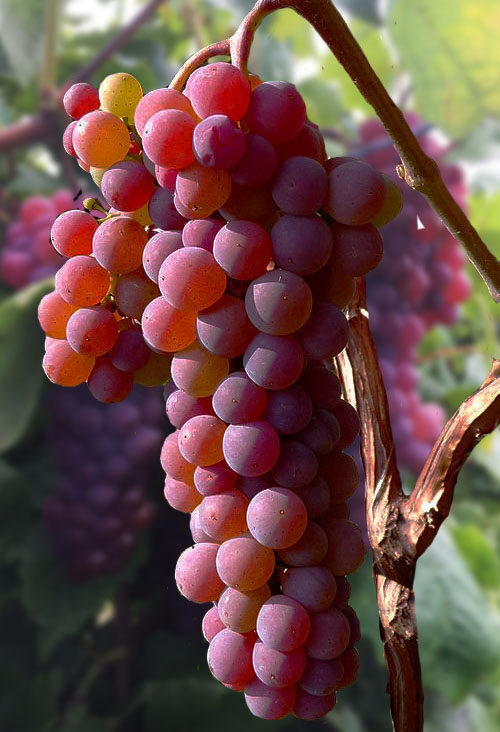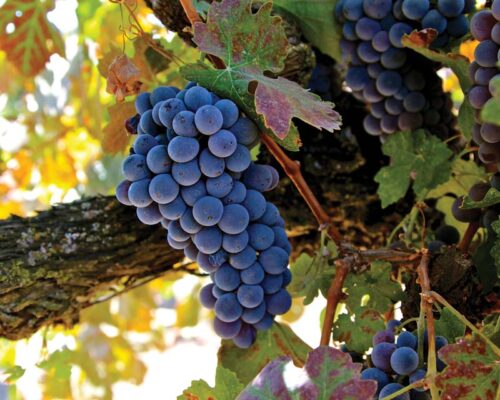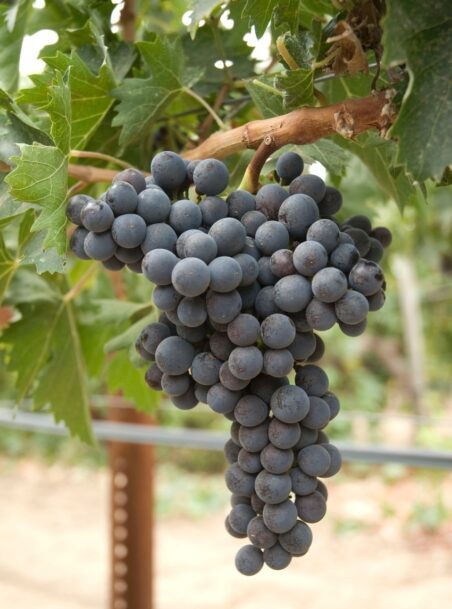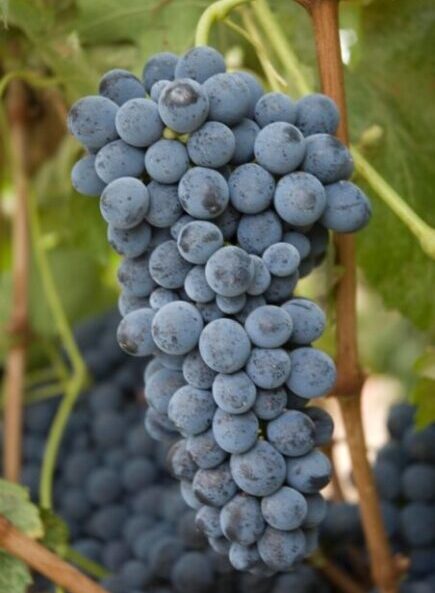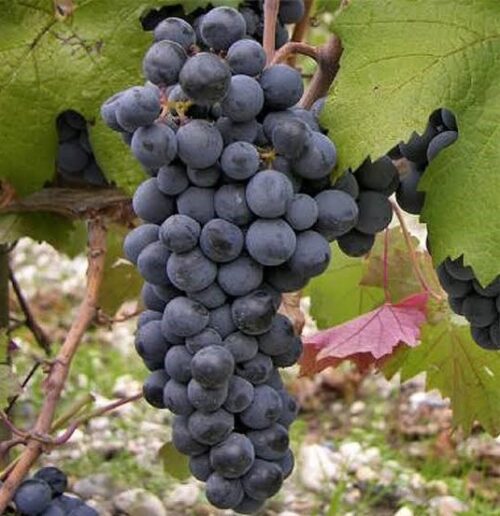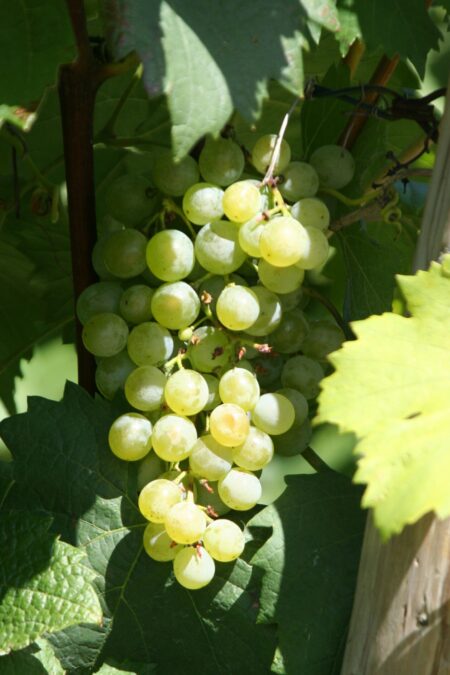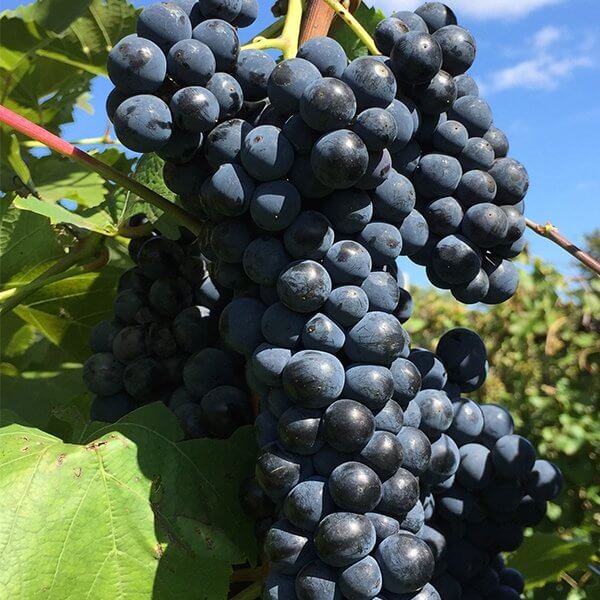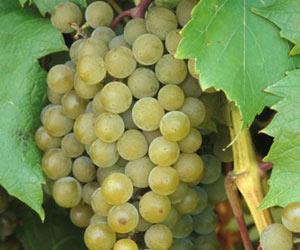-
A parent to Merlot and Cabernet Sauvignon, Cabernet Franc is another of the Bordeaux varieties. Cab Franc is lighter than Cab Sauv with different flavor profiles. It ripens a little earlier than Cab Sauv and is very popular on the East Coast of the U.S. as it has a good tolerance for cold winter temperatures. Like Cab Sauv, Cab Franc has small, thick skinned berries that have a high tolerance to diseases.
-
Cabernet Sauvignon is our most popular selection. It is the most widely planted and recognized red wine variety in the United States. It is suitable for all growing regions where grapevines can be grown. Cabernet Sauvignon is easy to grow and care for and has low disease susceptibility. It is very tolerant to cold winter temperatures as well as high summer temperatures.
-
Chardonnay is our most popular white wine variety and is the most widely planted commercial white wine variety in the United States. It is suitable for all growing regions where grapevines are grown. Chardonnay has medium disease tolerance and is very tolerant to winter cold temperatures. It has medium to large clusters and berries and produces very well.
-
Grenache is a late ripening variety that prefers hot and dry climates. Given the right conditions this variety can produce a large crop that will need to be balanced in the vineyard for quality wine production. The wines produced from this variety usually show bright red fruit and subtle spice characteristics.
-
One of the six main Bordeaux varieties, Malbec, or Cot as it is called in France, is a great stand-alone variety but normally used as a blender. It is fairly productive and provides deep color. It is grown throughout the world including France, the U.S., Argentina and Chile. However, it is not very winter hardy, so it is not recommended for regions dipping below 20 degrees F.
-
A white grape variety most commonly found in the Northern Rhone region of France. This variety often produces a relatively heavy crop of loosely clustered berries that prefer dry warm regions to grow in. The wine shows flavors of melon, honeydew and mineral, along with undertones of nuttiness. This could be a great substitution for Chardonnay or could be blended with Roussanne.
-
Another Bordeaux variety, Merlot is one of the most widely planted varieties in the world. It produces medium tannic wines with black fruit characteristics. It is consistently productive with loose clusters and large berries. It is suitable in hot and cooler climates and has good winter hardiness.
-
Sagrantino is an Italian grape variety indigenous to the region of Umbria. It is vigorous yet low-yielding vine. It flowers early, but requires a long hot season to ripen.
-
More popular as Petite Sirah in the U.S., this variety produces inky, black, full bodied wines. It is often used as a blender with Zinfandel. But, it is also blended in small amounts with other varieties to add color, and structure. The berries are small (petite) and the clusters are tightly packed making it highly susceptible to bunch rot. It is not considered a cold tolerant variety.
-
This is the latest ripening variety of the Bordeaux family of grapes. It produces rich colored wines with high tannins. The clusters and berries are small. It is grown throughout the world in small quantities. But, it is not considered a winter hearty variety.
-
Pinot Noir has most recently become a popular variety in the United States. It will grow anywhere that grapes are grown. However, it prefers cooler summers to achieve the highest quality. The clusters are small to medium sized with small berries. It has medium disease and winter cold tolerance. Some of the most sought-after wines in the world are made from Pinot Noir grapes.
-
Although Primitivo is considered to be the same as Zinfandel (they have the same DNA), we list Primitivo differently because this selection is a looser cluster than Zinfandel and is less susceptible to rot and other diseases. It can be used to make red and white (rose) wine. Primitivo is not as winter cold hardy as other varieties but can be planted where temperatures stay above 15 degrees F. It is a high producing variety that makes fruity wines that can be consumed at a young age.
-
Often called White Riesling, it produces aromatic wines with high acid. It has small clusters and small berries and can be left on the vine to produce late harvest wine with noble rot. The vines are very cold hardy and are grown the coolest regions of Germany, France, Austria, and Canada. It is popular on the East Coast as well.
-
Touriga National is a red wine grape variety from Portugal. It is a lower yielding fruit, but is a big part in blends used for ports. The vine is very vigorous, and can withstand higher heat in rockier climates.
-
Sauvignon Blanc is a high producing white wine variety that is not very winter cold tolerant. It is grown in every grape growing region from hot to cool climates. It has medium disease tolerance. Harvested early, it will make a wine with grassy, citrus fruit flavors. Harvested later will produce more tropical fruit flavors.
-
Syrah (also know as Shiraz) is a vigorous variety that does very well in cool as well as hot climates. This variety thrives in many different areas showing different characteristics in wine depending on where it is grown. The wines can show an array of dark fruits, cocoa, blueberry and mint. This variety is extremely versatile for winemaking and can be pleasant to grow in the vineyard with large yields.
-
A red grape variety that is largely planted in Spain. This variety is early ripening and thrives in warm climates. It yields large clusters and the yields are productive. The wine tends to be full bodied with a dark ruby color. On the palate you will taste light red fruits and baking spices.
-
Zinfandel is an American grape variety that performs differently in the field, but is genetically the same as Primitivo. It can be used to make red and white (rose) wine. Zinfandel is not as winter cold hardy as other varieties but can be planted where temperatures stay above 15 degrees F. It is a high producing variety that makes fruity wines that can be consumed at a young age.
-
Rootstock ONLY is just what is says; "rootstock only." There is no grape variety grafted to it. Use this option if you want to do your own grafting in the field. This is a great option for shade arbors also. Rootstock varieties produce little or no fruit. But, they look just like a fruiting variety without the maintenance and care that comes with producing fruit. Rootstock varieties are also Pierece's disease resistant.
-
Montepulciano is notable grape variety in Italy. It is a productive, late ripening variety that likes a hot, dry growing season. It is susceptible to Winter temperatures below 20 degrees F so is not recommended in cold climates. Typically, it is used in high quality wines of Central and Southern Italy. The wines produced have a deep ruby color with moderate acidity.
-
Like Sangiovese and Montepulciano, Barbera is one of the more popular grape varieties of Italy. It is very productive with tight clusters and large berries. It also benefits from a long, hot, dry growing season. It is not suitable to cold winter temperatures. The wines are a deep, ruby red with higher acidity. This makes it a good wine to pair with food.
-
Gruner Veltliner is a white wine grape variety that ripens mid to late October. The vine can be very fruitful and high yielding, and produce small yellowish-green berries.
-
La Crescent is a French-American Hybrid variety. This white grape provides a very cold hardy and moderately disease resistant variety for growers.
